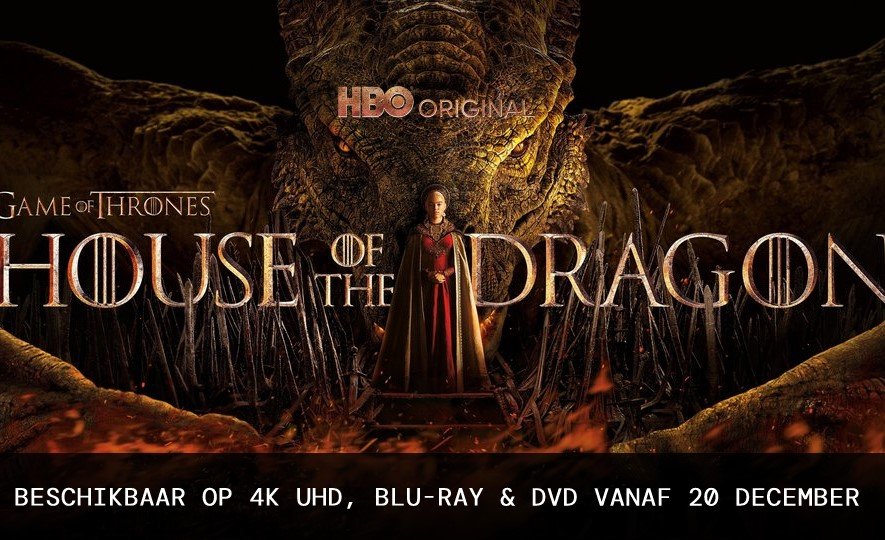Steven Spielberg wil Netflix-films verbieden bij Oscars
Steven Spielberg heeft zich eerder negatief uitgelaten over films van streamingsdiensten als Netflix of Hulu. De regisseur vindt het oneerlijk dat zulke giganten kans maken op de Oscars. Hij wil daarom nu dat de regels verstrengd worden en de streamingsdiensten uitsluiten van deelname aan de Oscars. Dat zegt een woordvoerder van zijn productiebedrijf Amblin Entertainment tegenover IndieWire. Volgens de woordvoerder:
“Steven feels strongly about the difference between the streaming and theatrical situation. He’ll be happy if the others will join [his campaign] when that comes up [at the Academy Board of Governors meeting]. He will see what happens.”
Spielberg vindt dat een Netflix-film als Roma niet volgens ’de regels’ speelt, omdat de film bijvoorbeeld voor korte tijd in de bioscoop te zien is en daarna wereldwijd 24 uur per dag gestreamd kon worden. Roma zou daarom volgens hem hoogstens nog maar genomineerd mogen worden voor een Emmy en niet meer voor een Oscar. Dit jaar haalde Roma tien Oscar-nominaties binnen, waarvan de film er drie won.
Bij de Oscar-vergadering volgende maand, waar onder meer de spelregels worden besproken, hoopt Spielberg dat anderen zijn voorbeeld volgen en hem zullen steunen in zijn strijd om Netflix-titels te weren.
Dit heeft online veel discussie losgemaakt bij een groot deel van de filmgemeenschap, van filmmakers en critici tot mensen op verschillende niveaus van de distributieketen en cinefielen. Sommigen bevinden zich aan de kant van Netflix, sommigen aan de kant van Spielberg en anderen nemen een meer gematigd standpunt in: het debat gaat veel verder dan onderwerpen als theatrale releases versus streaming- of exclusiviteitsvensters. Hieronder is een overzicht van enkele opmerkingen van belangrijke filmbeïnvloeders die op sociale media verschenen:
The Safdie Brothers, Regisseurs van “Good Time”
“The harsh reality is that on average 80% every movie’s life audience experiences it on video… doesn’t mean we shouldn’t do everything we can to protect the awe-inspiring, human-assuring, peace-inducing, collective experience of theatrical film watching.” – Tweet
Guy Lodge, Recensent bij Variety
“It is very funny that the awards season beneficiary of this Spielberg/Netflix ideological showdown was GREEN BOOK, a film about which no one would say, ‘You have to see it in a cinema!’… Hinging the theatrical/Netflix conflict entirely on the Oscars, as Spielberg is doing, just feels small, insular and point-dodging to me.” – Tweet
Bruce Campbell, Acteur In “Evil Dead” en “Burn Notice”
“Steven Spielberg is gunning to make sure Netflix never has another Oscars contender like Roma. Sorry, Mr. Spielberg, Roma ain’t no TV movie – it’s as impressive as anything out there. Platforms have become irrelevant. Make a movie with Netflix.” – Tweet
Chris Evangelista, Recensent bij Slashfilm
“Part of Spielberg’s argument is that Netflix should play by the same rules as every other Oscar nominee, and I do think that’s fair. I have no fealty to Netflix. I just wish he’d move beyond this ‘sacred theatrical experience’ riff, which is mostly a myth at this point.” – Tweet
Sasha Stone, Editor bij AwardsDaily
“My problem is people like Spielberg have lost touch with the economic reality of average movie goers. Playing to NY and LA to satisfy idealists is elitism at its worst. Most people opt for Netflix because they can see ten movies a week if they want for the same price.” – Tweet
Dave Kehr, Curator bij MoMA
“The paradox is that JAWS, as the first nationwide, TV-backed studio release, undermined the traditional platform release just as Netflix is now subverting the theatrical model. Spielberg would never have had the career he has without that “disruption” of an outdated system.” – Tweet
Erik Anderson, Editor bij AwardsWatch
“Netflix has given emerging filmmakers visibility and opportunity, brought in legendary directors like Scorsese and changed their release structure to more than accommodate Oscar qualifications. This position by Spielberg seems very near-sighted and needs more voices.” – Tweet
David Ehrlich, Recensent bij Indiewire
“Anyone who pits Netflix against theatrical as some kind of zero-sum game is helping towards mutually assured destruction. It matters HOW movies can be seen. It matters WHO can see them. Cinema will only die if people feel they have to deny one of those ideas to support the other… if Netflix and theaters could agree to use theatrical windows as advertising campaigns for the eventual streaming release, everyone would win.” – Tweet
Richard Shepard, Regisseur van “The Matador ” & HBO’s “Girls”
“ROMA was the best movie of year. I love Steven Spielberg he was/is a true hero of mine-but good movies r good movies-Wherever they play. And in a world where we have more JURASSIC PARKS then SHIRKERS Netflix fills a gap. Love the big screen, but love the story/heart of movie more.” – Tweet
Zack Stentz, Schrijver van “Thor” & “X-Men: First Class”
“If the end result of the Spielberg-Netflix dispute is Netflix committing to bigger theatrical rollouts for more of their films, it’ll be a win-win for everyone… While everyone weighs in on Spielberg vs. Netflix, it feels like we’re missing two much bigger issues. There’s a whole generation that’s stopped going to theaters except for giant branded events, and another generation behind them that’s more interested in video games than movies.
A lot of people are making the economic argument, but…Generation X was broke as s–t during the mid-90s (the Clinton boom hadn’t really gotten going yet) and still drove the indie film renaissance of that period. My bigger point here is that movies were the most vital popular art form of the 20th Century, and if we’re not careful they’re going to shrink to a niche form of storytelling with a rapidly aging audience. So what is to be done?” – Tweet
Franklin Leonard, Bedenker van The Blacklist
“t is my belief that @TheAcademy exists to celebrate and promote to the world the best of everything that could remotely be considered a motion picture… It isn’t even about Netflix, though they’re the most visible and least sympathetic target. It’s about every other film and filmmaker who will struggle to get access to the resources necessary to make a film but not get those allowing for a four-week exclusive theatrical release.
I also think we can all agree that it is more difficult for films by and about women, people of color, and myriad other communities to access the resources necessary to secure an exclusive four week theatrical window. The Academy is then faced with a choice between 1. finding another way to support the theatrical experience and 2. further excluding communities that have been historically excluded from its ranks, which has catastrophic consequences downwind in the industry.” – Tweet
Ava DuVernay, Regisseur van “Selma” & “A Wrinkle in Time
“Dear @TheAcademy, This is a Board of Governors meeting. And regular branch members can’t be there. But I hope if this is true, that you’ll have filmmakers in the room or read statements from directors like me who feel differently… One of the things I value about Netflix is that it distributes black work far/wide. 190 countries will get ‘When They See Us’… I’ve had just one film distributed wide internationally. Not ‘Selma,’ Not ‘Wrinkle,’ it was ’13th’. By Netflix. That matters.” – Tweet
Prasanna Ranganathan, Producent van “Dream Girl”
“Netflix is committed to inclusive storytelling – to depicting the full complexity of the world and to highlighting the voices of often ignored filmmakers and artists. Traditional studios scoffed at the Netflix distribution model & the limited theatrical runs for movies (the Cannes Film Festival even prevented Netflix from competing in the festival). However, Netflix is making films accessible for everyone around the world.
Calls to exclude Netflix from awards consideration at the Oscars seems inimical to industry & Academy goals to ensure that films are more inclusive & that Oscar nominations reflect the full spectrum of artists & filmmakers working today. If the Academy’s commitment to diversity & inclusion as articulated in its A2020 strategy is as robust as it seems, excluding Netflix and its diverse artists, storytellers & filmmakers from awards consideration makes no sense.” – Tweet
Sean Baker, Regisseur van “Tangerine” & “The Florida Project
“Wouldn’t it be great if @netflix offered a “theatrical tier” to their pricing plans? For a nominal fee, Netflix members could see Netflix films in theaters for free. I know I’d spend an extra 2 dollars a month to see films like Roma or Buster Scruggs on the big screen. This would help keep theater owners and audience members who appreciate the theatrical experience satisfied.
Just an idea with no details ironed out. But we need to find solutions like this in which everybody bends a bit in order to keep the film community (which includes theater owners, film festivals and competitive distributors) alive and kicking.” – Tweet
Paul Schrader, Regisseur van “First Reformed” & “American Gigolo”
“I have no animus against Netflix. Ted Sarandos is as smart about film as any studio exec I’ve ever met. Distribution models evolve. The notion of squeezing 200+ people into a dark unventilated space to see a flickering image was created by exhibition economics not any notion of the “theatrical experience.” Netflix allows many financially marginal films to have a platform and that’s a good thing.
But here’s my query: it involves FIRST REFORMED. First Reformed was sold at a bargain price to A24 out of the Toronto FF. Netflix, which could have snapped it up as easily as it swats a fly on its ass, passed. As did Amazon. As did Sony Classics and Focus. But A24 saw a commercial path for this austere aesthetic film. As a result First Reformed found a life. A24 rolled it out through festivals and screenings from 2017 to 2018. And it survived. Not a big money maker but profitable for A24 and a jewel in their crown.
Would First Reformed have found this public acceptance if Netflix and scooped it up (at say twice the price A24 payed) and dumped it into its larder? Perhaps Bird Box and Kissing Booth can fight their way through the vast sea of Netflix product to find popular acceptance, but First Reformed? Unlikely. Relegated to film esoterica. A different path? My proposal: For club cinemas (Alamo Draft House, Metrograph, Burns Center, Film Forum) to form an alliance with a two tiered streaming system (first tier: Criterion/Mubi, second tier: Netflix/Amazon). Distribution models are in flux. It’s not as simple as theatrical versus streaming.” – Tweet




